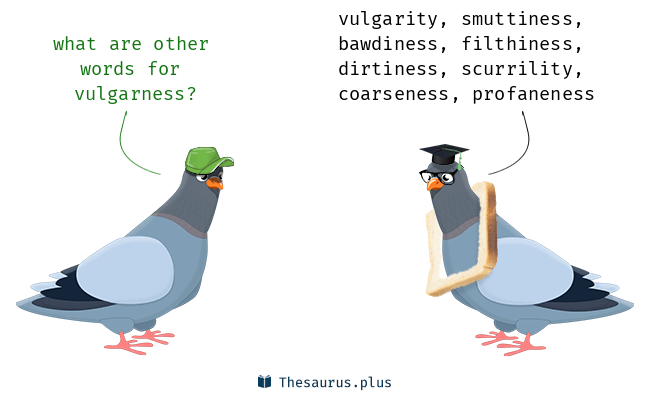
adjective
- characterized by ignorance of or lack of good breeding or taste: vulgar ostentation.
- indecent; obscene; lewd: a vulgar work; a vulgar gesture.
- crude; coarse; unrefined: a vulgar peasant.
- of, relating to, or constituting the ordinary people in a society: the vulgar masses.
- current; popular; common: a vulgar success; vulgar beliefs.
- spoken by, or being in the language spoken by, the people generally; vernacular: vulgar tongue.
- lacking in distinction, aesthetic value, or charm; banal; ordinary: a vulgar painting.
noun
- Archaic. the common people.
- Obsolete. the vernacular.
adjective
- marked by lack of taste, culture, delicacy, manners, etcvulgar behaviour; vulgar language
- (often capital; usually prenominal) denoting a form of a language, esp of Latin, current among common people, esp at a period when the formal language is archaic and not in general spoken use
- archaic
- of, relating to, or current among the great mass of common people, in contrast to the educated, cultured, or privileged; ordinary
- (as collective noun; preceded by the)the vulgar
late 14c., “common, ordinary,” from Latin vulgaris “of or pertaining to the common people, common, vulgar,” from vulgus “the common people, multitude, crowd, throng,” from PIE root *wel- “to crowd, throng” (cf. Sanskrit vargah “division, group,” Greek eilein “to press, throng,” Middle Breton gwal’ch “abundance,” Welsh gwala “sufficiency, enough”). Meaning “coarse, low, ill-bred” is first recorded 1640s, probably from earlier use (with reference to people) with meaning “belonging to the ordinary class” (1530).
 Liberal Dictionary English Dictionary
Liberal Dictionary English Dictionary